Chupan Chupai by Factory Fifteen at Future Perfect
This teaser movie by architectural film studio Factory Fifteen offers a vision of a future city controlled by a supercomputer, where architectural structures can be hacked and insect-like drones police the streets.
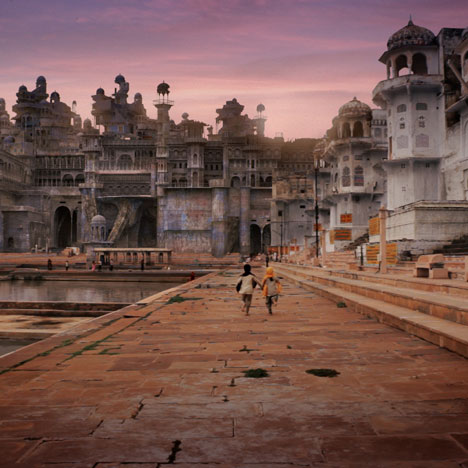
Factory Fifteen produced a 12-minute version of the film for the Future Perfect exhibition at the Lisbon Architecture Triennale, which presents a vision of how cities could become transformed by technology.
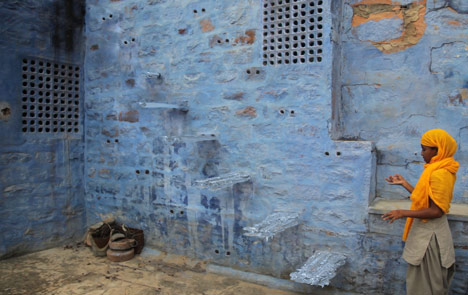
In the movie, a group of children play a game of hide and seek around the city. "Through their play the children discover how to hack the city, opening up a cavernous network of hidden and forgotten spaces, behind the scenes of everyday streets," explained Factory Fifteen's Jonathan Gales and Paul Nicholls.
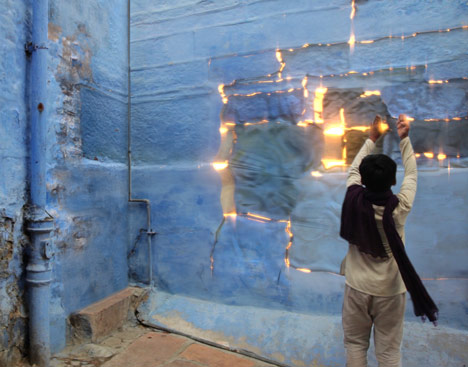
One child uses gestures to create a staircase by extruding a wall, while another is able manipulate surroundings to find camouflage.

Two children venture into a woodland area, where they are chased by a swarm of drones until they find their way back to their friends.
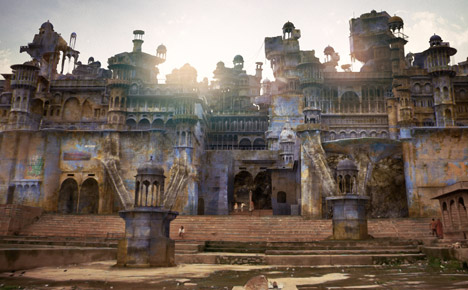
Factory Fifteen filmed the movie on location in India using a group of local children as actors, then used animation to exaggerate and manipulate the imagery.
Inspired by science fiction, the Future Perfect exhibition was curated by architect Liam Young. It is made of of five "districts", including a place where sculptural dresses are made by dunking people into wax and a woodland designed to accommodate genetically modified plants.
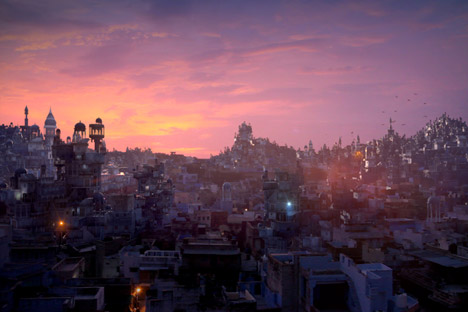
The Lisbon Architecture Triennale continues until 15 December. Follow Dezeen's coverage of the The Lisbon Architecture Triennale or read our interview with curator Beatrice Galilee.
Here's some text from the exhibition organisers:
Chupan Chupai
From a clearing in the mist we scan across the city in luminous detail. A film is projected from the lookout that follows a group of children as they play a game of "hide and seek" in Future Perfect.
Shot on location in India we see through their eyes a near future heavily influenced by the imminent boom of the Indian subcontinent, an emerging technology and economic superpower. The control systems that now run traffic systems, power grids and financial networks sit in the shadows, out of sight but silently organising our lives.
Deep in the substrate of Future Perfect is a supercomputer that regulates the city and everyone within it. Reminiscent of an exaggerated silent film, everyone interacts with their digital city through intricate signs and gesture control. As the children play they learn to hack the augmented streets evading their friends but getting lost in the hidden spaces they have unlocked. They must escape from a sentient city that no longer recognises them.